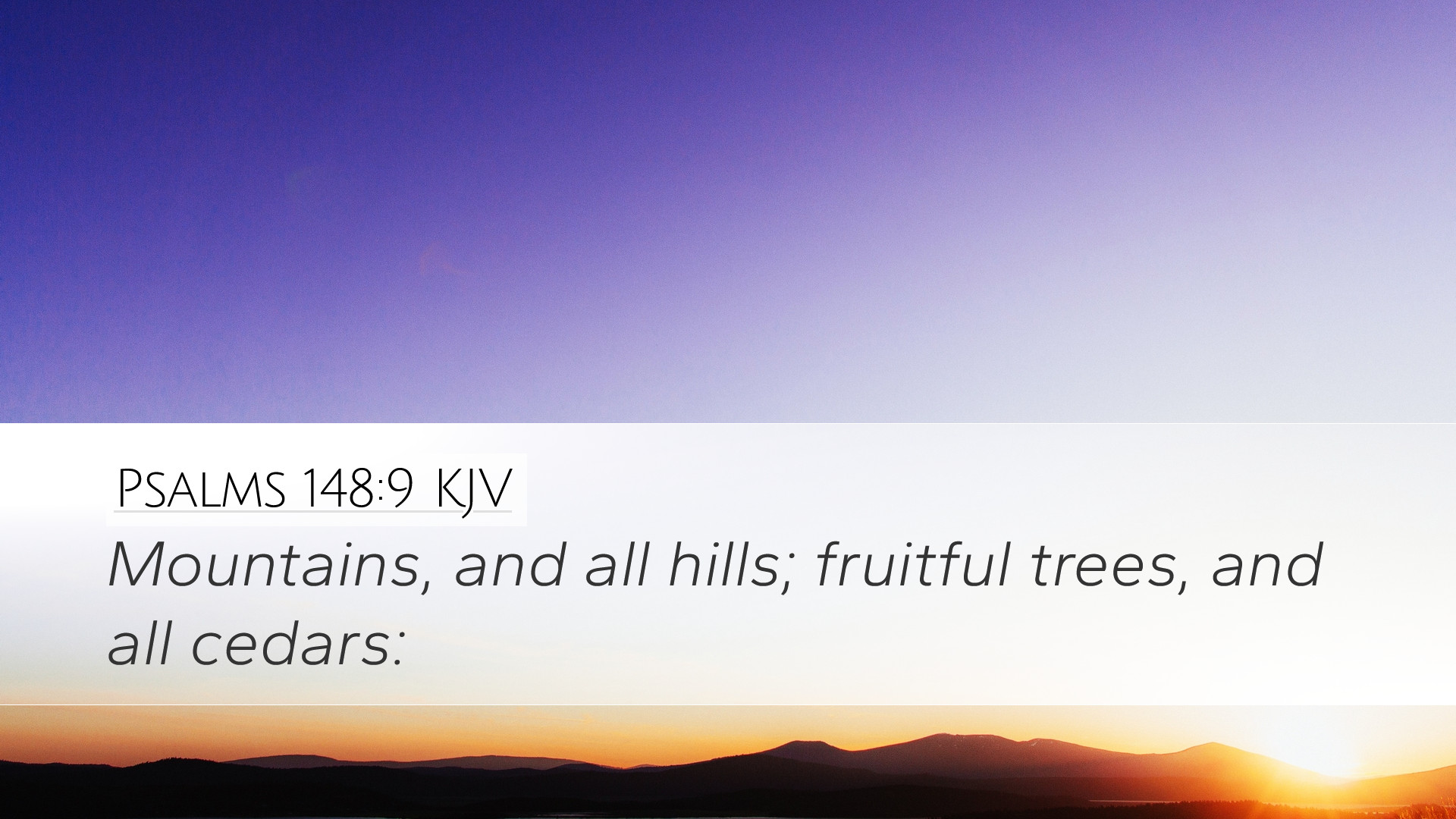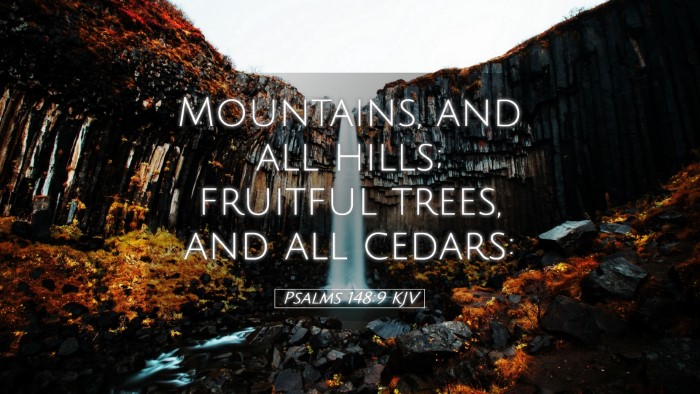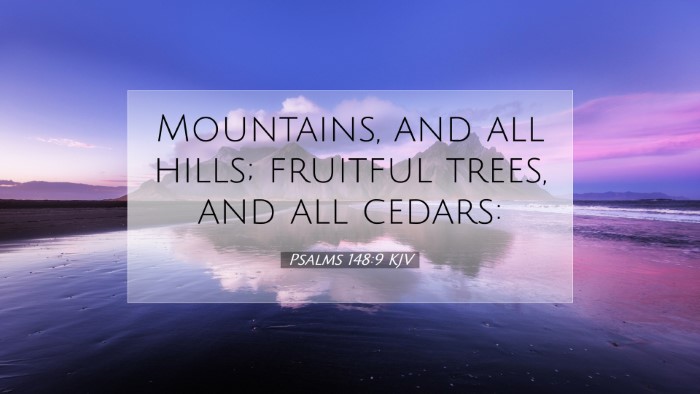Psalms 148:9 Commentary
Bible Verse: "Mountains and all hills; fruitful trees and all cedars:" (Psalms 148:9)
Overview
This verse is part of the larger context of Psalm 148, a hymn of praise that calls on all of creation to glorify the Lord. Each category of creation is exhorted to render praise, emphasizing God's sovereignty and the universal scope of His majesty. The listing of “mountains,” “hills,” “fruitful trees,” and “cedars” illustrates the grandeur and diversity of God’s creation.
Commentary Insights
1. The Invitation to Creation
Psalms 148 serves as an invitation to creation, highlighting the duty and privilege of all created things to worship their Creator. In this verse, the psalmist specifically mentions the natural elements: mountains, hills, and trees.
Mountains and Hills
Matthew Henry comments on how mountains and hills symbolize stability and prominence in creation. They stand tall against the horizon, a testimony of God’s enduring power. The mention of both mountains and hills signifies the entirety of the earth’s topography, thus encompassing all geographical features in worship.
Fruitful Trees and Cedars
Albert Barnes notes that fruitful trees represent the bounty and goodness of God’s provision. They give sustenance and joy to humanity, serving as a reminder of God’s generous hand in Creation. Cedars, on the other hand, are noted for their strength and durability, often a metaphor for stature and majesty in biblical texts. Their inclusion emphasizes the qualities of strength and resilience that, like other elements, magnify God’s glory.
2. Theological Implications
The invocation of various natural elements to praise the Lord reveals profound theological truths. The unity of all creation in worship underscores the greatness of God, who is portrayed as the ultimate source of life and sustenance.
Creation's Role in Worship
Adam Clarke articulates that by including all these elements of nature, the psalmist establishes a sense of communal worship. All creation plays a vital role in reflecting God's glory; each element serves as a participant in the divine chorus of praises. This invites contemporary readers to recognize that the worship of God transcends human expression, encompassing all that exists.
3. Reflecting on Humanity's Responsibility
While this psalm calls upon nature to worship, it also subtly reminds humanity of its duty to respond to the Creator’s majesty.
Humanity's Unique Position
Henry emphasizes that humanity, created in the image of God, has a unique obligation to praise Him. Rather than only being passive observers, humans are called to actively engage in worship, responding to God’s greatness through lives that reflect His glory and character.
Creation's Witness to God's Glory
Barnes suggests that creation itself serves as a witness to God’s power and divinity. Romans 1:20 states that God’s eternal power and divine nature have been clearly seen in creation. Thus, the praise of nature only underscores the logic of human worship; it is unreasonable to observe God’s creation and remain indifferent to His majesty.
4. Practical Applications for Today
Today, the message of Psalms 148:9 encourages both personal and communal reflection on God’s grandeur as seen in nature.
Encouragement for Worship Leaders
Worship leaders and pastors can draw on this text to inspire congregations to view creation not just as a backdrop to worship but as an integral part of the worship experience itself. Nature offers us insights and inspirations that can deepen our understanding of God’s nature.
Environmental Stewardship
This verse subtly beckons believers to care for God's creation. The act of preserving nature is, in essence, an act of worship. We as stewards must appreciate the beauty of creation, recognizing that in its flourishing, we see God's glory displayed.
5. Conclusion
Psalms 148:9 encapsulates a rich tapestry of meaning, from the majestic testimony of creation to the call of humanity to respond in praise. This psalm encourages believers to engage deeply with the world around them, recognizing that all created things have a role in reflecting God's glory.
In summary, this verse invites all of creation, including the mountains, hills, fruitful trees, and cedars, to join in praising God. As we reflect on these insights, let us not only understand our part in this divine symphony of worship but also recognize our responsibility towards creation and our Creator.


